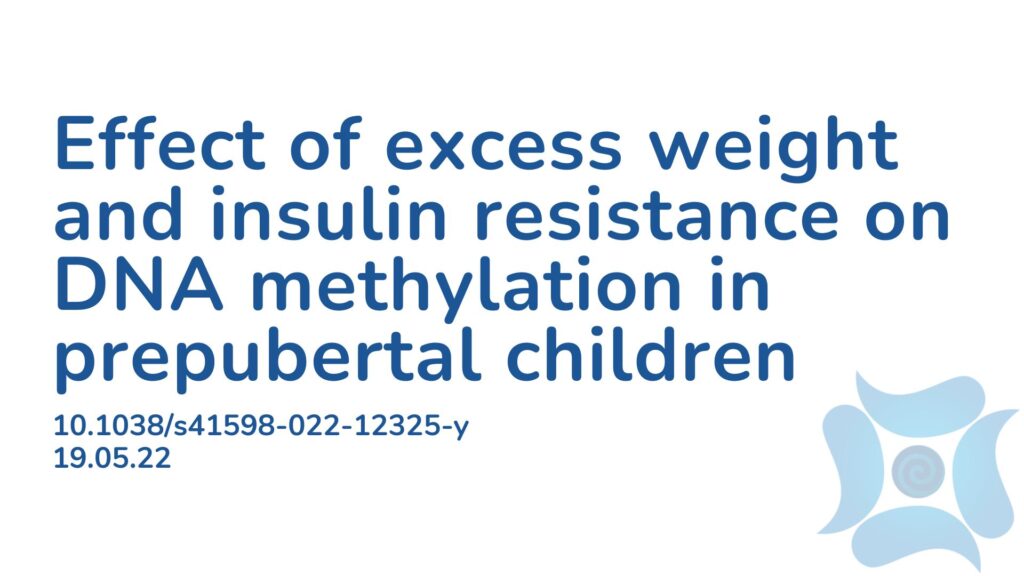Summary: Excessive weight in childhood and adolescence has been associated in previous literature with impaired insulin action and the development of comorbidities later in life such as hypertension, type 2 Diabetes (T2D), cardiometabolic diseases and cancer. Excess weight in childhood and adolescence also shares similar risk factors for comorbidities at a younger age such as T2D, cardiovascular disease and and non-alcoholic fatty liver disease. The objective of this paper was to evaluate how body mass index (BMI) and insulin resistance (IR) alone or in combination were related to blood pressure, lipid profiles and lactate levels, as well as genetic patterns such as DNA methylation in peripheral blood mononuclear cells (PBMCs). The cohort studied was 41 prepubertal children aged 5–10. The results showed that obesity and IR both independently impact metabolic health in prepubescent children. In addition, excessive weight and obesity showed an impact on the DNA methylation of the PPP6R2 gene in this particular population, which could be an underlying starting point for the systemic inflammation correlated with obesity and IR.
Abstract: Epigenetic mechanisms, such as DNA methylation, regulate gene expression and play a role in the development of insulin resistance. This study evaluates how the BMI z-score (BMIz) and the homeostatic model assessment of insulin resistance (HOMA-IR), alone or in combination, relate to clinical outcomes and DNA methylation patterns in prepubertal children. DNA methylation in peripheral blood mononuclear cells (PBMCs) and clinical outcomes were measured in a cohort of 41 prepubertal children. Children with higher HOMA-IR had higher blood pressure and plasma lactate levels while children with higher BMIz had higher triglycerides levels. Moreover, the DNA methylation analysis demonstrated that a 1 unit increase in the BMIz was associated with a 0.41 (95% CI: 0.29, 0.53) increase in methylation of a CpG near the PPP6R2 gene. This gene is important in the regulation of NF-kB expression. However, there was no strong evidence that the BMIz and the HOMA-IR were synergistically related to any clinical or DNA methylation outcomes. In summary, the results suggest that obesity and insulin resistance may impact metabolic health both independently in prepubertal children. In addition, obesity also has an impact on the DNA methylation of the PPP6R2 gene. This may be a novel underlying starting point for the systemic inflammation associated with obesity and insulin resistance, in this population.
Article Publication Date: 19.05.22
DOI: 10.1038/s41598-022-12325-y



